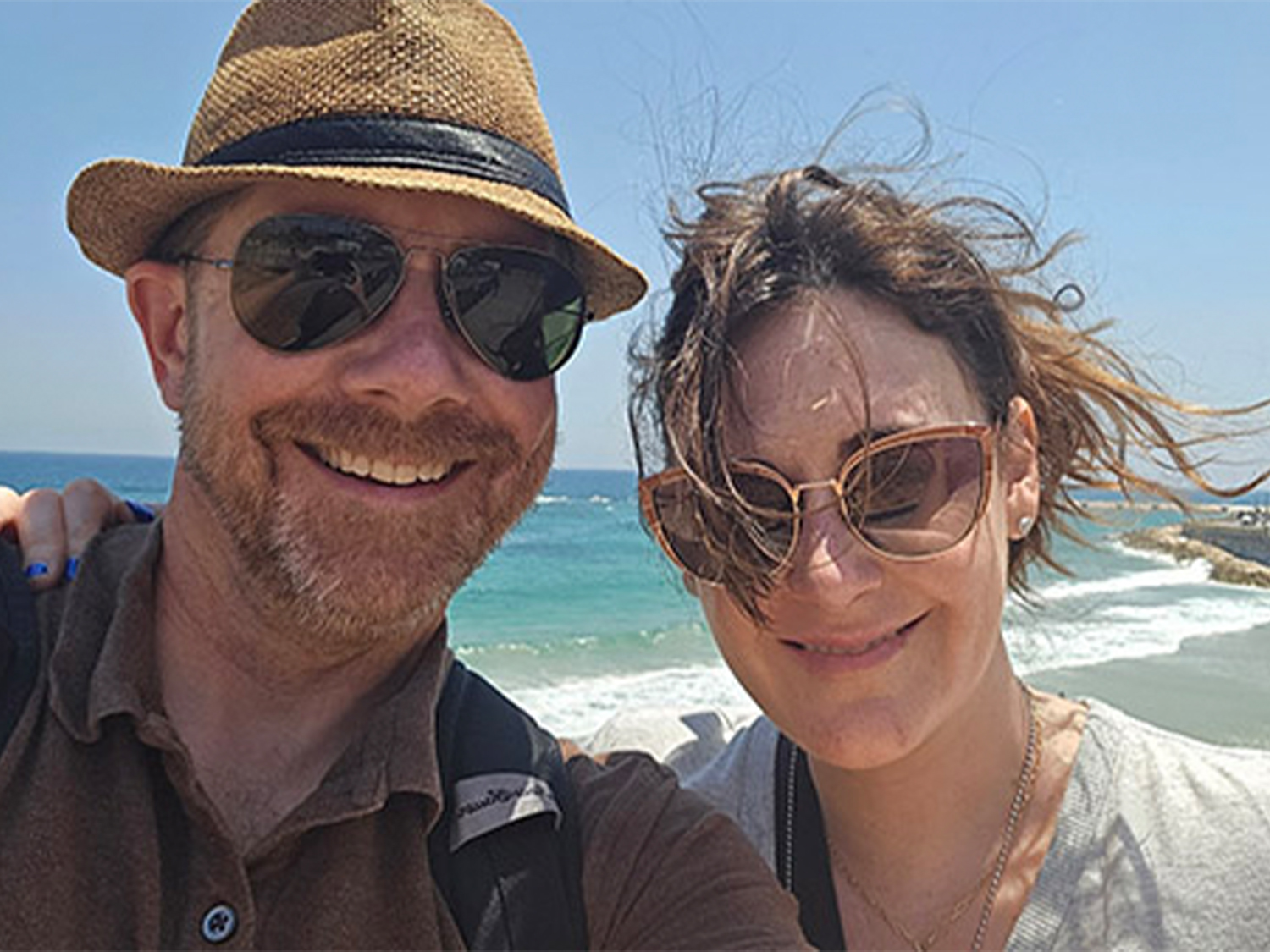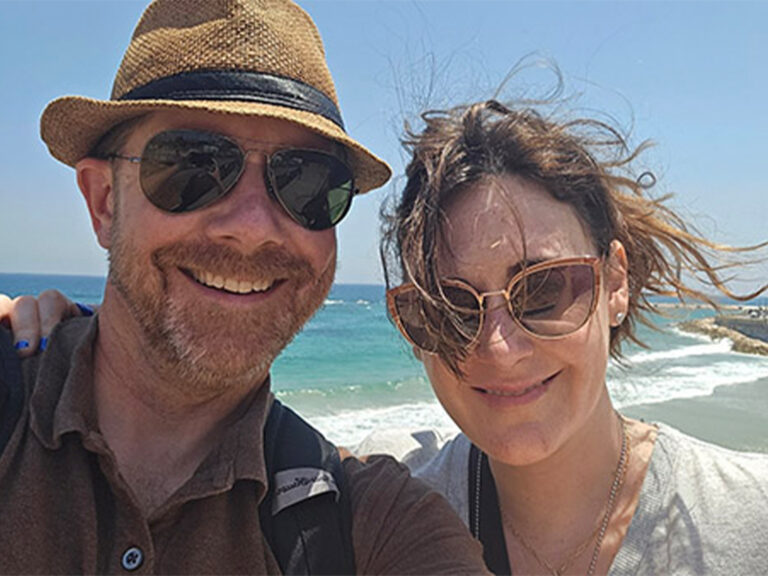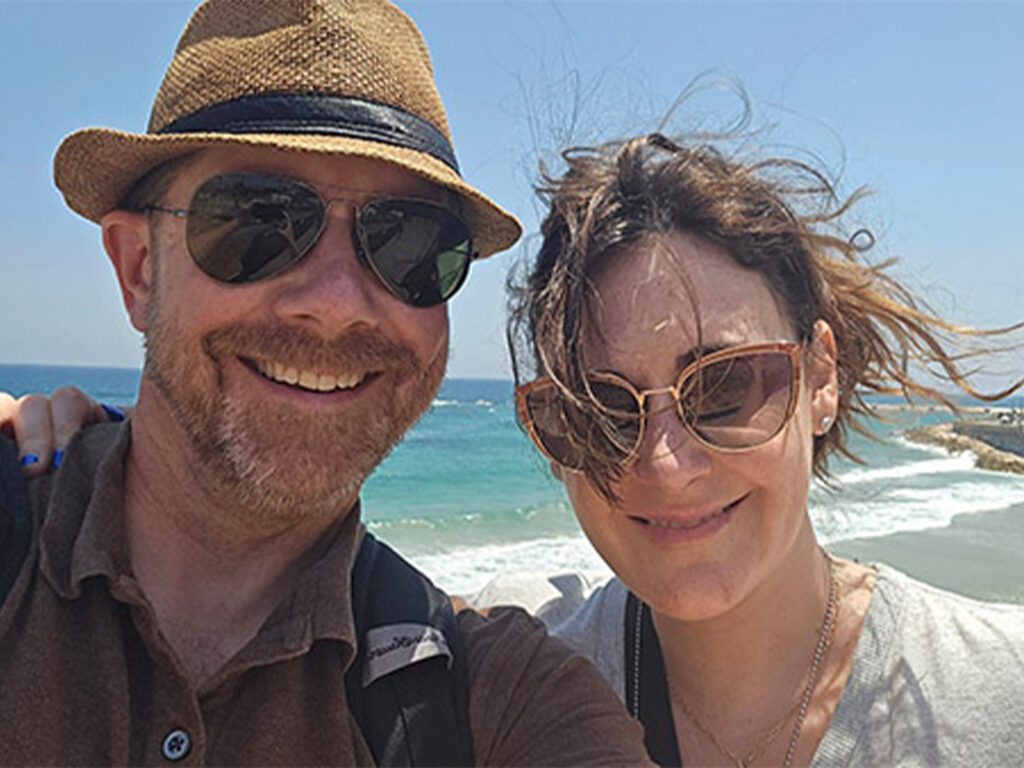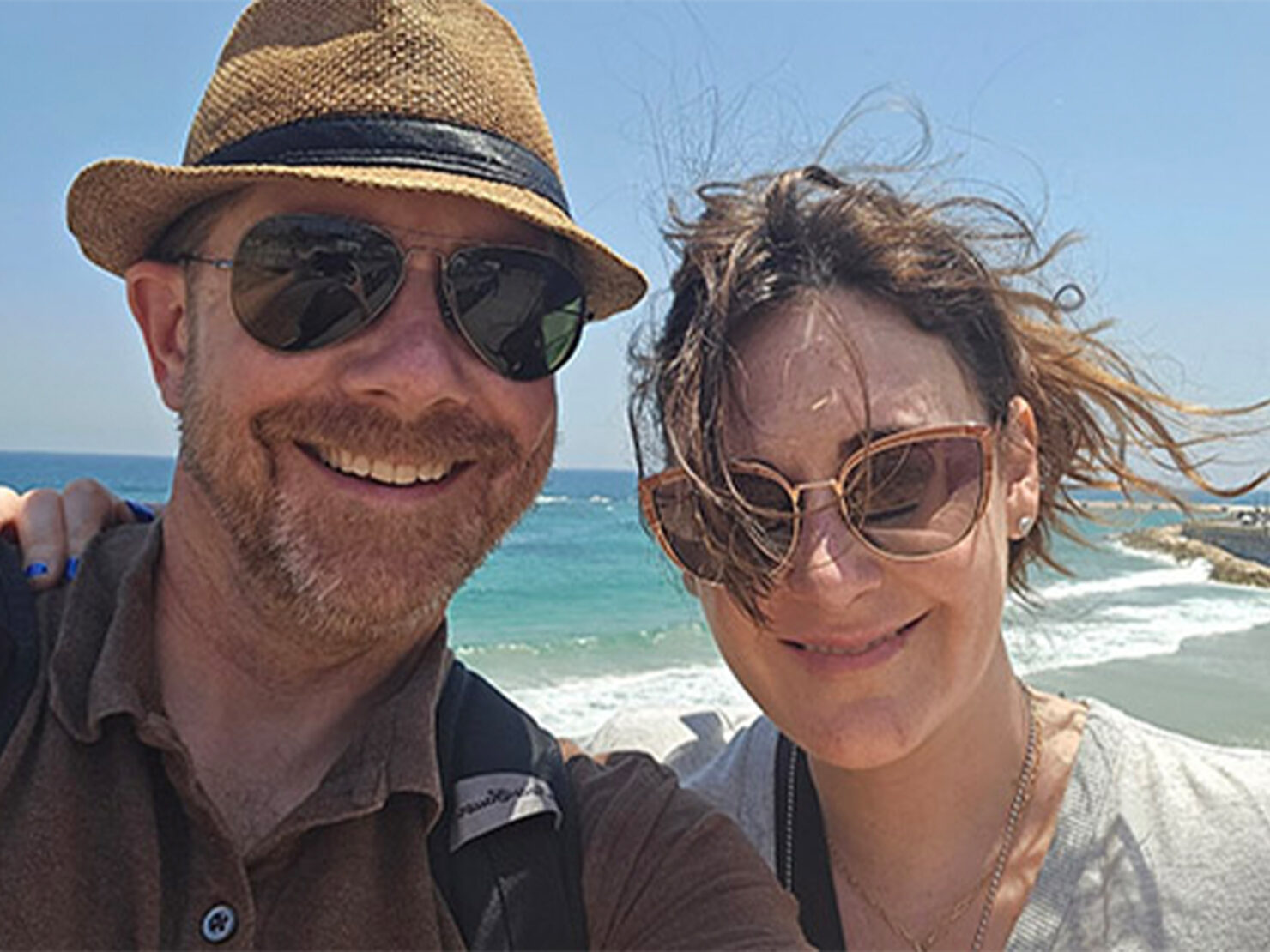Finding out about a brain tumor is daunting — even more so when the patient is far from home, on their own, as symptoms peak and the diagnosis happens.
That was the case for Elizabeth Merrill, a psychologist who lives in Maine with her husband Lawson and their two young children. Elizabeth had traveled to Israel in July 2024 to volunteer on an American/Israeli mother-to-mother unity mission after the October 7 terrorist attacks. But, instead of connecting with other mothers, she ended up in a Tel Aviv intensive care unit with severe neurological symptoms. Doctors there conducted brain imaging that showed a 3.5-centimeter meningioma — a tumor that grows from the membranes that surround the brain and spinal cord — with a large amount of edema.

Elizabeth may have been alone when she heard the news, but she wasn’t for long. After her husband flew to Israel and they decided to bring her back to the United States, she was immediately surrounded by an integrated, multidisciplinary team at Mass General Brigham (MGB) Cancer Institute, including Gavin Dunn, MD, PhD, and Deborah Forst, MD, that provided expert care for all her health issues. From meeting her at the door of the hospital right after she got off the plane, to performing surgery that removed the entire meningioma and offering long-term support for migraines that arose as a result of the tumor, the MGB team made sure Elizabeth wasn’t on a solo journey as she navigated her treatment.
“I’m with a team that I can very genuinely express my needs to and know that they will be receptive and respond immediately,” Elizabeth says. “They all work in conjunction with one another, and I feel very taken care of as a patient. It’s been a tremendous experience.”
An Inkling Becomes a Medical Crisis
When she goes back in time, prior to her diagnosis, Elizabeth says she had an inkling that something was off. Before leaving for her trip, she had been sleeping a lot and experiencing short-term memory issues. Once she landed in Israel, she felt discombobulated. Over the course of her first day, that out-of-it feeling quickly transitioned to dizziness, migraines and vomiting. Volunteers from the volunteer program took her to a Tel Aviv urgent care, where doctors thought she was inebriated and sent her back to her hotel. When she returned with even worse symptoms, they sent her to the city’s major hospital. There, clinicians ordered the computerized tomography (CT) scan that revealed the tumor.
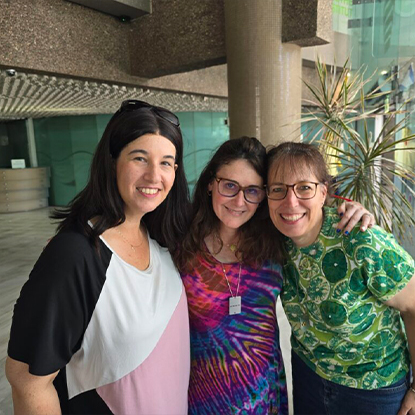
After the diagnosis, Elizabeth was in and out of consciousness in the hospital’s intensive care unit. Once her husband arrived, they paid for medical transport back to the U.S. The couple drove straight from the airport to Mass General, where they met with Bob S. Carter, MD, PhD, who spent more than three decades as a neurosurgeon and chaired the neurosurgery department at Mass General Hospital. In late July 2024, Dr. Carter removed the entire tumor — what Dr. Dunn, who currently manages Elizabeth’s neurosurgery care and considers Dr. Carter a mentor, called “a spectacular surgery.” Even with non-cancerous masses such as meningioma, Dr. Dunn says, the tumor can return in the same place if a fraction remains.
“They were absolutely precise with the surgery, and the fact that they got clear margins is huge in terms of success rate,” Elizabeth says. “The technology they used, the care I received, the bedside manner of each of the doctors and nurses — I felt so taken care of, period.”
“At MGB, when it comes to surgery, we don’t shy away from technically challenging cases,” Dr. Dunn says. “The skill level of the surgeons here meant that for Elizabeth, we can manage her case with serial scans. We’re not talking about radiation or more surgery.”
A 360-Degree Approach
The team also erred on the side of caution in developing a management plan for Elizabeth’s tumor, setting her up for regular monitoring to stay ahead of any recurrence and integrating neuro-oncology, psychiatric oncology, and pain management into her care. Because Elizabeth began experiencing migraines after the surgery and has back issues due to a connective tissue disorder, Drs. Dunn and Forst also connected her with Thomas Cheng, MD, PhD, who directs the Headache and Neuropathic Pain Unit, and other pain management specialists.
“I’ve always felt that when someone receives treatment like this, the best method is to centralize your team,” Dr. Dunn says. “Thanks to the 360-degree components of care here at Mass General Brigham, we have the benefit of interacting with all the team members involved because they’re all here. It’s as personalized and comprehensive as it can get.”
The team told me, ‘You’re going to be 85 years old and we’ll still be working together.’ They saved my life. I’m so grateful to have such an incredible team of doctors.”
“In cancer care, we think of the whole patient and everything they’re going through,” Dr. Forst says. “The providers here are deeply invested in patient care, so we know there’s trust, communication and collaboration. We can work together, everyone is aware of the bigger picture of what she’s gone through, and we’re in a place where we can ensure she’s meeting with the best possible experts for her issues. MGB Cancer Institute has become her home base, and that results in really excellent care.”
A Year Later
Elizabeth celebrated her “craniversary” on July 23, marking a full year since her successful surgery. She says she’s doing “100 percent better — people look at me now and say they wouldn’t have known.” Since she’s in her late 40s, she says some of her day-to-day aches and pains could be attributed to the natural aging process, which she considers a privilege given what she’s experienced. Fortunately, she has group of expert clinicians that can help her tell the difference.
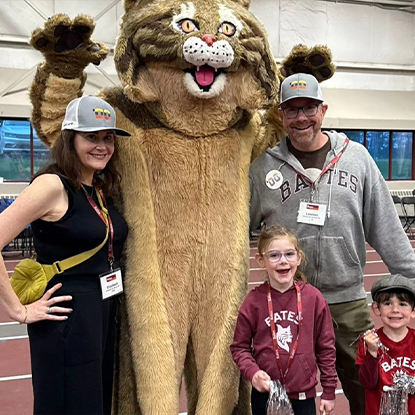
“The team told me, ‘You’re going to be 85 years old, and we’ll still be working together,’” Elizabeth says. “They saved my life. I’m so grateful to have such an incredible team of doctors.”
To learn more about neurosurgery and brain tumor care at Mass General Brigham, please contact us.
